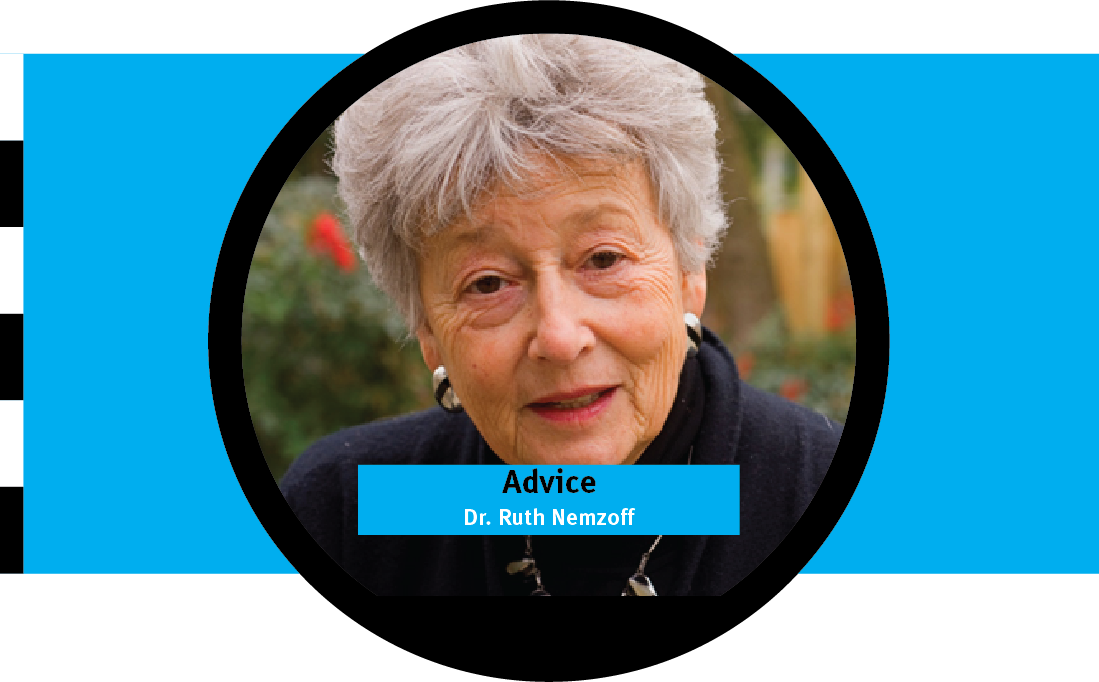Q: L’dor Vador — From Generation to Generation is about not only sharing our culture but it is also about sharing our wisdom. My young adult grandchildren are facing a lot of rejections. From college rejection to graduate school rejections to job rejections, it is incredibly painful for them. I see they are getting very discouraged. How can I help?
A: By now, most adults have faced a wide variety of rejection. Perhaps we did not get the lead in the school play, or we did not get into our first choice college. And let’s not even try to count how many jobs we applied for and did not get. We know life is a lottery ticket and ours does not always get chosen. We know there are many outside, societal influences, over which we have no control, and they impact the trajectory of our lives. Our immigrant forbearers might have been just as smart or just as talented as we are, but their circumstances, a new language, no education, the need to support a family, may have prevented them from using their potential.
As Jews, we only need to look at our history to see examples of overcoming adversity. Those who had envisioned their lives in a certain way, only to be exiled, have had to start new lives. In the new life, their opportunities may have been diminished or enhanced, but in either case they were different from their expectations. Our history is a story of resilience and reimagining. The Passover story of our exile from Egypt and the subsequent 40 years in the desert, provides a good model for transformation.
Both our Jewish history and our family histories over and over again remind us we are not totally in control of our own trajectories or the world around us. Right now the crisis in Israel and the rise of antisemitism is a daily reminder that forces beyond our control also shape our lives. On a more individual level, the recent layoffs of federal employees have resulted in a job market saturated with job seekers who have more experience than the recent graduates. At other times, world events have helped young job seekers. For example, in the era of the space race following Sputnik, opportunities for engineers were abundant.
A young adult facing their first or yet another major rejection is likely to experience feelings of despair and inadequacy. Often this disappointment occurs when the college decisions come out in March. Alternatively, it may come when they are applying for their first job or when they find themselves laid off or fired.
At the time the bad news is received, they should feel like they have “permission” to react in whatever way seems appropriate to them: Crying, shopping, eating, etc. A reward such as a new sweater or a large Frappuccino can momentarily assuage the initial pain but then they need the strength and skills to move beyond this initial reaction. Here is where you can help. You can use stories from your own disappointments and you can also use lessons from Jewish history. Starting now, whether they are already facing rejection or whether it might be imminent, talk about some of the rejections you have overcome. Tell them how you felt and what you did to move beyond the rejection to the next steps. I have told all my grandchildren about my attempts to publish my first book, “Don’t Bite Your Tongue: How to Foster Rewarding Relationships with Your Adult Children.” Over a period of four years, I received many rejections from publishers. I was disappointed each time but I persisted and finally the manuscript was accepted by a reputable publisher, Palgrave Macmillan. Whenever one of my grandchildren is rejected, we mourn the loss and formulate a plan for moving on. They understand that rejection is part of life. You can model persistence, perseverance and resilience by sharing your stories. It is time to pass these lessons on to the next generation. Just spouting platitudes such as “It will all work out” or ‘It’s probably for the best” will never be as effective as sharing. How did you face your disappointment and your feelings of inadequacy? What were your next steps?
Currently, we as a people and we as individuals need imagination and creativity to help us look for alternatives. Good old fashioned brainstorming, in which no idea is too far fetched, is a good place to start. What can the future look like? What steps can we take to make that vision happen? As a people, we are currently paralyzed by an inability to see a safe future for Israel and the Middle East. In addition many of us are feeling totally impotent about the changes in America. This uncertainty can exacerbate personal hopelessness. We can wallow in our disappointment and anger but that will not solve our problems nor lead to happiness. We know that fixating on our pain doesn’t serve us. We must force ourselves to use our imaginations and find another path. Helen Keller said: “When one door of happiness closes, another opens: but often we look so long at the closed door that we do not see the one which has been opened for us.” Our history reminds us that what we think is final is not often so, and what we think is the end of the line may simply be a bump in the road.


